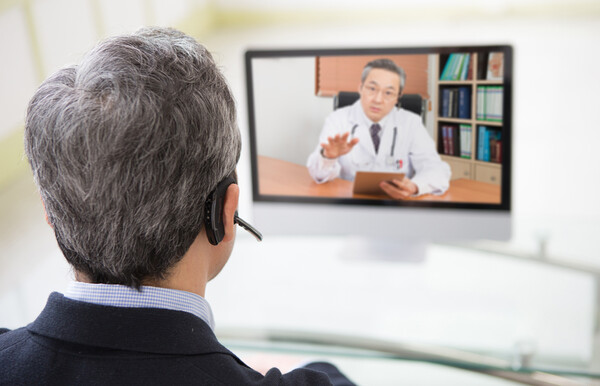The policy to expand non-face-to-face medical treatment faces backlash from the medical community.

Last Friday, the government announced the “Supplementary Plan for the Non-Face-to-Face Medical Treatment Pilot Project” and decided to expand the target of non-face-to-face medical treatment on holidays and nights from children under 18 to all ages. It also decided to expand the diseases that can be treated.
In addition to the medically vulnerable region, the government will also include regions where emergency treatment is difficult to provide in areas subject to telehealth.
However, the Korean Medical Association opposed the move, saying it was "no different from allowing non-face-to-face consultations across-the-board," followed by calls from various medical circles for the government to withdraw the expansion policy.
The Seoul Medical Association also issued a statement on Monday, calling for rescinding the policy. "If unavoidable telemedicine is expanded, an optional division of labor should be introduced simultaneously,” it said.
The association pointed out that allowing all patients, including children and adolescents, to receive telemedicine on holidays and at night is a very dangerous idea. Even delaying patients who need to go to the emergency room to have them receive non-face-to-face treatment can cause great harm, it added.
The association noted that the focus on convenience is also misguided. It argued that emphasizing convenience may be misguided, and introducing a division of labor would be more effective.
"In the Korean medical situation, where access to healthcare is very good, there is little benefit non-face-to-face treatment can provide patients. If the problem of drug delivery is not solved after non-face-to-face treatment, it is difficult to expect an improvement in accessibility," it said.
If the government wants to expand access to healthcare in underserved areas, it must return the power to dispense medication to doctors now, the association emphasized.
“One-stop care and dispensing from a doctor is safer and more convenient," it said.
Related articles
- ‘Behind Japan’s telemedicine success is reimbursement policy leading to voluntary participation’
- Narcotic prescription through telemedicine increased sharply
- 57% of telemedicine prescriptions were non-reimbursed: survey
- Doctors are reluctant to go virtual due to unclear legal responsibility: survey
- Telemedicine legislation stalls due to excessive detail in revision bills

